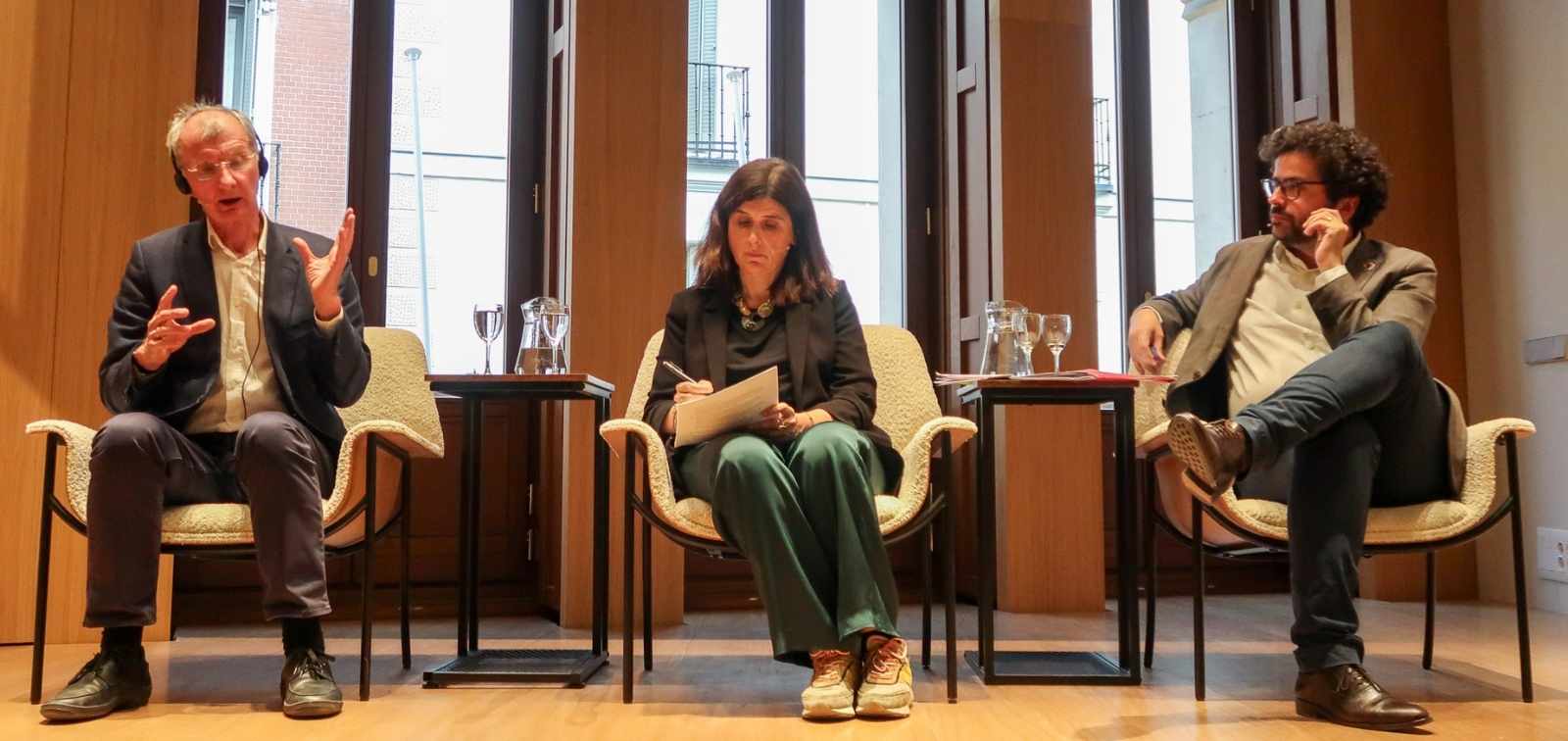The Future of International Cooperation Under Debate Amid a Time of Transformation
Two months ahead of the IV International Conference on Financing for Development, ISGlobal and Planeta Futuro – El País bring together expert voices to rethink the global cooperation model
12.05.2025
At a time marked by geopolitical uncertainty and cuts to Official Development Assistance (ODA), the Barcelona Institute for Global Health (ISGlobal), a centre promoted by the ”la Caixa” Foundation, and Planeta Futuro – El País organised a dialogue on the future of international cooperation at 'Ateneo de Madrid'.
The event, held on May 6, brought together Kevin Watkins, visiting professor at the London School of Economics and former executive director of ODI Global and Save the Children in the UK, and Antón Leis, director of the Spanish Agency for International Development Cooperation (AECID) and former advisor to the OECD Secretary-General.
The meeting took place just a few weeks before the IV International Conference on Financing for Development, which will be held in Seville in July and is shaping up to be an opportunity to redefine the foundations of the multilateral cooperation system. The coming months will be crucial to achieve this goal: both Gavi, the Vaccine Alliance, and the Global Fund are preparing for their respective replenishment conferences, which will be essential to sustain vaccination efforts and the fight against the three major pandemics—high-impact interventions for national development and global prosperity.
The risk of setbacks in international cooperation
Kevin Watkins opened his speech with a clear warning: the multilateral order of international cooperation is regressing, and the decisions made in the coming months will be decisive. “We are ceasing to view cooperation as a global common good, and that has real consequences for the lives of millions of people,” he said.
And it’s not just the United States. The main European donor countries—Germany, the UK, and France—have already announced aid cuts. Watkins highlighted the need to seek alternatives, such as debt relief or strengthening fiscal capacities in the most vulnerable countries. He also proposed moving away from technical discourse to create a new public narrative that connects emotionally with citizens. “Public opinion polls in the UK showed that two-thirds of the population would support cutting aid by 0.2% of GDP to fund equivalent defence spending.”
He also denounced the structural inefficiency of the current cooperation system, marked by excessive fragmentation and the proliferation of implementing agencies that hinder coherence and impact: “We cannot afford to maintain such a system at a time like this,” warned Watkins.
Europe’s growing responsibility
For his part, Antón Leis emphasised the key role that the European Union can play as the leading donor bloc in a context of U.S. withdrawal. He noted that the IV International Conference on Financing for Development in Seville could mark the beginning of a structural transformation of the system and stressed the importance of protecting two fundamental pillars: the international humanitarian system and the global health architecture. “Cooperation must no longer be seen as a compassionate option, but as an investment in stability and global health,” said the AECID director.
Leis advocated for a more coherent model, with less fragmentation and more horizontal partnerships. He called for using cooperation as a lever to unlock other funding sources and to drive structural transformations rather than isolated projects.
New narratives, new pacts
During the audience Q&A, former President of the UN General Assembly María Fernanda Espinosa stressed the need to rethink the cooperation narrative from a more inclusive, feminist, and global well-being–oriented perspective. “The word ‘aid’ should disappear from the vocabulary and be replaced with ‘cooperation’,” she said. She also called for a more ambitious approach at the Seville Summit, focusing on a global social pact that restores citizens’ trust in institutions and multilateralism.
Moderator Beatriz Lecumberri closed the event with a call for transformative communication: “We must make the vital appealing. One of the main challenges ahead is convincing citizens that what happens elsewhere also affects us.”



